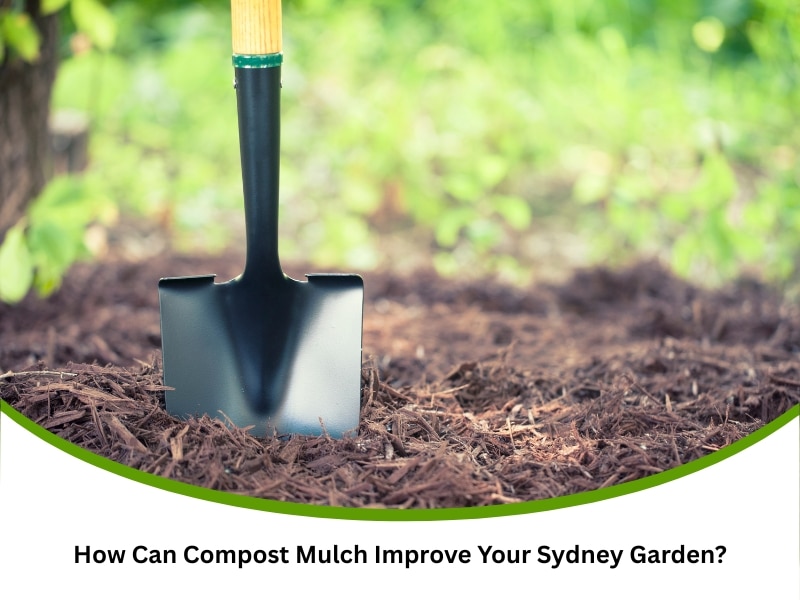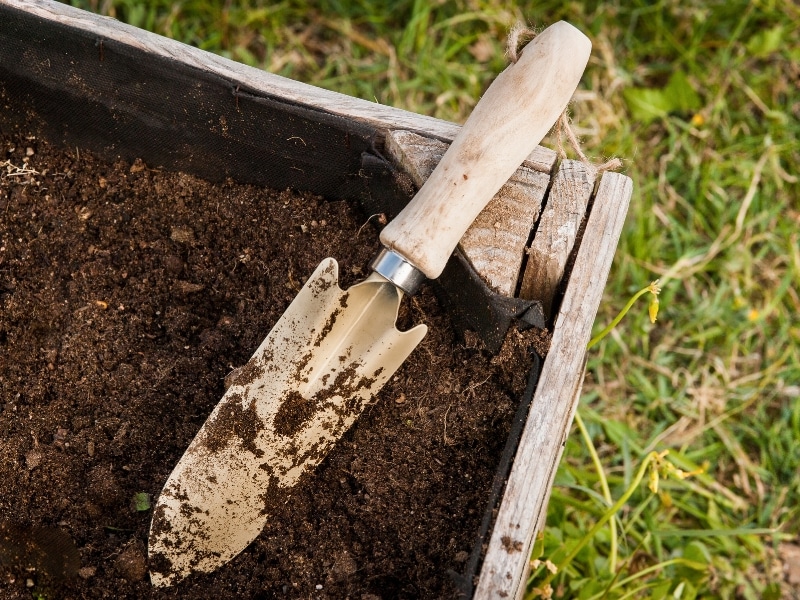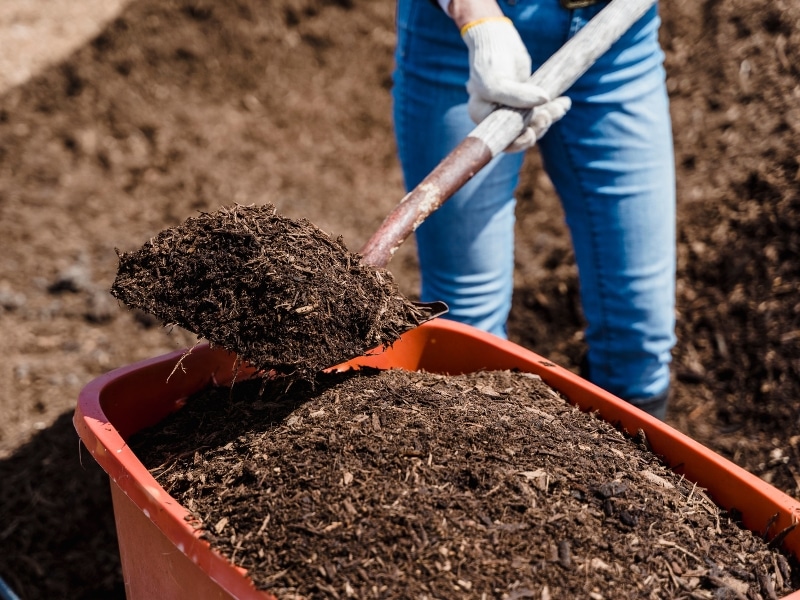Keeping your garden soil healthy in Sydney’s unpredictable climate is no easy feat. From clay-heavy patches to dry spells and sandy areas, your plants endure plenty of stress. That’s where compost mulch comes in — a proven method to retain moisture, enrich soil, and support thriving growth all year. Neglecting mulch might seem harmless, but it gradually depletes nutrients, reduces soil structure, and leads to stunted plant health. Appropriately used, compost mulch offers lasting benefits like erosion control, better water retention, and reduced gardening effort. Whether you’re growing veggies or natives, this article explores how compost mulch enhances soil health.
What issues arise from neglecting compost mulch in garden beds?
Compost mulch often gets overlooked until the damage is already done. Many gardeners focus solely on fertilisers and watering schedules, while the ground underneath slowly deteriorates. But skip mulch for too long, and garden beds start showing signs of stress and wear.
- Soil becomes hard-packed and lifeless without the cushioning and protective effect of mulch. This makes it harder for roots to grow and for water and air to circulate freely.
- Organic matter breaks down more slowly, leaving nutrients locked away and unavailable to plants.
- Rainwater rushes off instead of soaking in, contributing to erosion, compaction, and water loss during storms or heavy rain.
- Weed growth accelerates in unprotected soil, as bare patches provide a perfect habitat for invasive species.
- Insects and disease risks increase because bare soil promotes splashback, which spreads fungal spores and pathogens onto foliage.
It’s easy to overlook mulch until plants struggle. Compost mulch improves resilience and keeps weeds in check — especially when you understand how using mulching methods helps with weed suppression across seasons.
How does poor soil structure worsen without compost mulch?
Soil structure isn’t just about what’s underfoot — it’s the entire framework your plants rely on to breathe, anchor, and absorb nutrients. And without compost mulch to support it, that structure starts to fall apart.
- Crusts form on the surface, especially after rainfall or watering, creating a hard seal that blocks oxygen, sunlight, and moisture.
- Microbial activity drops, since beneficial bacteria and fungi thrive in moist, shaded environments — not sunbaked dirt.
- Roots struggle to stretch into compacted ground, leading to shallow root systems that are less resilient to heat and drought.
- Soil texture becomes uneven, with dry, cracked areas beside over-saturated pockets — a sign of inconsistent infiltration.
As a result, your garden’s growth slows, and you’re stuck compensating with costly soil additives or intensive labour. If these symptoms sound familiar, it may be time to find tailored mulching solutions for healthier gardens that address your site-specific needs and soil profile.
Can neglected mulch cause long-term fertility problems?
Absolutely. Many gardeners think of mulch as optional, but when you consistently neglect it, your soil loses its natural resilience — and fertility issues start compounding over time.
- Nutrient loss through runoff becomes common, especially in sloped gardens or areas that experience seasonal rain.
- Earthworm populations decline, reducing one of nature’s best natural aerators and composters.
- Soil pH drifts out of balance, affecting your plants’ ability to absorb vital minerals like phosphorus, potassium, and calcium.
- Topsoil quality diminishes, with organic matter failing to replenish fast enough to
Over time, neglected mulch reduces your soil’s capacity to bounce back. The long-term solution lies in the benefits of adding organic material to support long-term soil health through consistent layering.
What benefits does compost mulch offer for soil health?
When appropriately used, compost mulch works wonders for soil quality — especially in Sydney’s mix of clay, sand, and unpredictable rain. Let’s take a look at some of its most significant benefits:
- Moisture retention improves immediately, helping your soil hold water longer and reducing the frequency of watering, especially in summer.
- Organic nutrients are slowly released as mulch breaks down, creating a slow-feed system that sustains plant growth over months rather than days.
- Beneficial microbes and fungi multiply, enhancing the soil food web and supporting root development and disease resistance.
- Temperature fluctuations are buffered, preventing root shock and protecting fragile young plants from harsh climate swings.
One overlooked benefit? Compost mulch benefits native Sydney soils by mimicking the natural leaf litter process. The key is knowing what type of mulch works best for your soil. That includes knowing how thick mulch should be applied to gardens, since depth plays a major role in water retention and weed control.
With vs. Without Compost Mulch
Soil Metric Without Mulch With Compost Mulch Moisture retention Low High Soil temperature Fluctuates Stable Organic content Decreasing Increasing Microbial activity Sparse Rich Erosion resistance Poor Strong
This table illustrates how compost mulch improves your soil’s resilience and performance over time — not just for one season, but across many.
How does using compost mulch support plant growth?
Mulch isn’t just about the soil — it directly affects plant health above ground too. By regulating what happens below, compost mulch gives your plants a clear advantage.
- Seeds germinate more evenly in consistently moist, buffered environments.
- Young roots avoid temperature shock and transplant stress due to reduced soil temperature swings.
- Fungal diseases drop off when soil splashback is reduced — meaning fewer infected leaves and less need for fungicide.
- Plants develop deeper, stronger root systems, leading to better drought tolerance and nutrient access.
Especially in Sydney’s summer heat, using compost mulch for garden moisture retention protects fragile root systems from rapid dry-out and heat stress. It’s like giving your plants sunscreen and breakfast in one go — a natural defence that boosts health, longevity, and yield.
How can organic compost mulch and soil-enriching mulch enhance your soil?
Not all mulch is created equal. Choosing the right blend of organic compost and soil-enriching mulch can turn dull, dusty dirt into vibrant, living soil.
- Look for mulch that combines fine compost with chunky woody bits — the compost feeds the soil quickly, while the woody pieces provide lasting structure and erosion resistance.
- Balance nitrogen-rich green materials with dry brown matter, such as shredded leaves, straw, or bark. This ensures your mulch breaks down evenly without overheating or rotting.
- Avoid using too much fresh grass or food waste, as these can generate excess heat and attract pests if not properly aged.
- Layer mulch about 5–7 cm deep, but keep it slightly away from plant stems to avoid rot or fungal buildup.
Done right, this mulching strategy improves water efficiency, controls weeds and removes them from your garden, prevents erosion, and maintains healthy, nutrient-rich soil for more vigorous plant growth. It’s a system, not a sprinkle — and the more intentional you are, the better your garden will perform long-term.
Final thoughts
You don’t need to overhaul your whole garden to see results. Just one smart move — consistent compost mulching — brings compounding rewards across the seasons. Whether you’re restoring worn-out beds or preparing for a productive growing season, compost mulch sets a reliable foundation. It’s cost-effective, environmentally sound, and deeply aligned with what Sydney soils need to thrive. For anyone still on the fence, discover how A1 Gardening Sydney can assist with your mulching needs and give your soil the boost it’s been missing.



